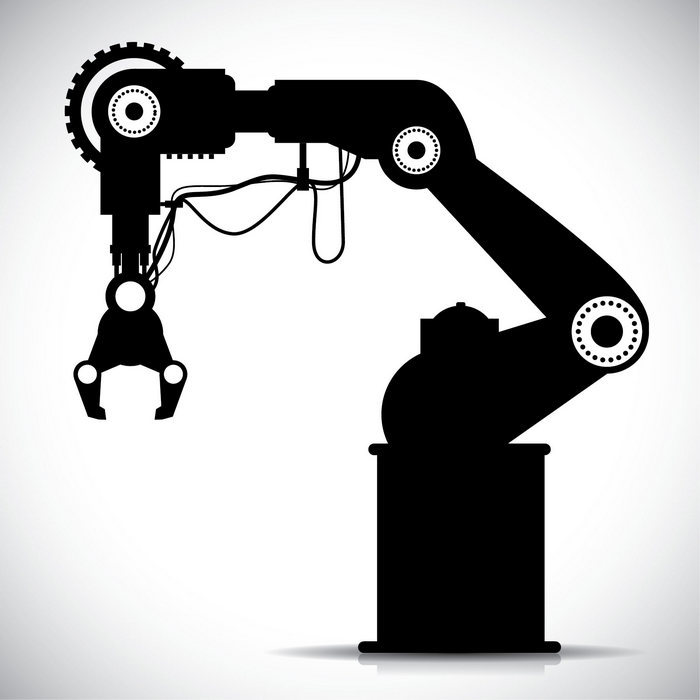And again about the automation of IT professions

It is considered to be that automations are subject mainly to professions that do not require analytical activities. Therefore, many IT specialists feel safe, they say, they won't put a robot in my place. However, the development of machine learning already allows using RPA (robotic proccess automation) for refusing to hire people (mainly outsourcing) in such areas as support service, server maintenance and data center, network support, etc. How serious is the progress in this area and is it not time to start worrying?
Perhaps we can talk about the creeping revolution, which can radically affect all the existing outsourcing models in IT. Thanks to the development of software and algorithms of artificial intelligence, automation began to approach professions that have always been considered the prerogative of people.
What is RPA?
Behind this abbreviation hides special software that can record, analyze and interpret the activity of other applications. That is, an RPA application can be “trained” so that it repeats one or another action algorithm within various business processes. For example, it can carry out bank transfers on its own, manipulate some data, initiate responses to requests and interact with other systems. That is, the main goal of RPA-applications is a complete failure or a noticeable reduction in the share of “human” participation in mass IT support, provision of work processes, management of remote infrastructure and various support tasks. Moreover, RPA is primarily focused on the financial sector, accounting, supply management, customer support and even human resource management.
')
Of course, by "RPA-application" is not meant any one application, it is software packages. They include all sorts of tools for data collection, including screenshots, OCR, modules for connecting to servers and web sites. RPA engines also often use algorithms similar to those used in business process management tools. With all this, RPA-packages are supplied with clear graphical interfaces and do not require constant attention during everyday operation.
On the one hand, the implementation of RPA promises a huge cost savings and deliverance of IT-employees from the boring and tedious routine. But on the other hand, it threatens the very existence of a number of professions and positions held by these same IT employees. And we are talking not only about the tasks of the mechanical execution of some operations.

Is it really?
More recently, RPA was a semi-futuristic horror story, to which many were skeptical or condescending. However, the development of this technology has already led to the fact that consulting companies, outsourcing contractors and some “end users” - large companies have become interested in its capabilities. An organization dedicated to the in-depth study of the robotization of processes - IRPA, Institute for Robotic Process Automation has already appeared. According to IRPA experts, the introduction of this technology can give savings in the amount of 20-40% of the wage fund, and from such promises any businessman "will make a stand." Moreover, IRPA predicts that over the next three years, most of the jobs in the field of supporting IT infrastructure will be automated.
Some of the pioneers have already replaced about 60% of their employees with RPA complexes. First of all, the automation services were subjected to data center maintenance services, server and network infrastructure. The software development and support departments were out of danger, but there are all the prerequisites for RPA to be gradually, step by step, being implemented in this area. Maybe now it looks unlikely, but many people once once questioned the current potential of the RPA.
Most likely, such tasks as inputting information to the database, including from the keyboard, forming and processing samples according to some rules, will fall first before automation. Yes, almost any process that operates within the framework of the rule system can be automated using RPA technologies. At least partially. A striking example is software testing.

To be honest, automation has long won back from people. And it's not about the deep old days of Ned Ludd. 30-40 years ago, there were quite a few office professions that we don’t even remember today - their tasks are now performed by the technician, and for us it looks like a matter of course. It all started with the simplest operations, but the developers of RPA-technologies are constantly developing their products, crushing more and more algorithmically complex duties performed by people today.
As an example, we can cite the process of migrating a company to a new ERP system. Often this requires a large amount of manual data transfer. This requires either increasing the workload of the staff, or attracting additional labor. In any case, the process is not fast and costly. And here you can use the RPA-complex at the right time, thereby significantly increasing the speed of migration and saving significant funds.
It should be noted that companies that feel the taste of RPA, in the future, they try to use less and less new employees. Indeed, in addition to direct savings in wages, computers can improve the efficiency of automated business processes. At the same time, the influence of the human factor is significantly reduced in such a sensitive area as customer support.

Honey spoon
Many experts point out that the implementation of RPA does not mean the complete abandonment of human workers: after all, someone must train and retrain systems, maintain them. So, the process of automation will give someone the opportunity to find their professional niche. After retraining, some of the employees, whose place was taken by computers, can also do this. Also, a number of employees will need to leave to solve situations that do not fit into the algorithms. The rest will have to either change the profession within the company, or look for a better life in the market.
On the other hand, the opinion is quite popular that the need for good specialists in various IT professions is so great that it is not covered by university graduates. Therefore, people reduced in connection with the implementation of RPA, without any problems will be able to find a job, especially highly qualified ones. But it will certainly depend on their efforts to increase their potential attractiveness for employers. So, expanding the capabilities of RPA as a technology will force many IT employees to learn new, higher-priced professions or improve their current skills.

On the verge of change
Regardless of how the RPA will evolve in the future, this technology will bring some confusion to the IT sector: the migration of workers, a surge in the popularity of educational programs, the development of new systems by companies. It is unlikely that all these processes will be immediately noticeable, will begin gradually. As with the Internet, whose cheapening and widespread adoption has raised the phenomenon of outsourcing to an entirely new level, with the result that many people around the world have had to change jobs or retrain. But labor markets in a number of countries have benefited from this.
On the other hand, RPA can be the cause of much larger changes. Oh, at least in terms of social tension, rejection by tens of thousands of people whose well-being would be at risk. Despite the fact that for true professionals, the arrival of RPA will not be a tragedy at all.
Source: https://habr.com/ru/post/366805/
All Articles